First published in 2007 Molotov Cocktail initially appeared to be a contradictory mix, on one side there was its incendiary title, cover art of a hand poised to throw a lit petrol bomb, and the provocative subtitle , Dismantling the Master’s House Brick by Brick. Then this in the first editorial: “Molotov Cocktail broadly backs the principles and policies of the African National Congress. We believe that discussing the ANC with insight and generosity will be more interesting and productive than condemning the party out of ignorance.” A revolutionary magazine aimed at defending “the powers that be” with word bombs?
Partially, yes. Edited by James Sanders (initially with the help of Ronald Suresh Roberts and later alone) Molotov Cocktail captures the ambiguities of contemporary post apartheid South Africa, where despite the change of political power the majority of the media is still owned by a small white minority. As the editorial in the second issue explains, “In South Africa, many newspapers and magazines adopt a pose of neutrality that is essentially oppositional. Some of this derives from the ‘anti-apartheid’ history of the mining press but it is really a cover for a political agenda that attempts to impose an illiberal narrative onto news and politics. The print media has not transformed quickly enough and we hope to speed it along.”
With that in mind Molotov Cocktail took a deliberately intellectual approach, defining itself as, “a platform where South African intellectuals will debate issues and engage in serious discussions about the direction that our country should take.” It has featured everything from archival documents including long-lost SACP biographies and back issues of the SADF’s Paratus, to new writing on cultural schizophrenia, oil, opposition, Zimbabwe, ‘apartheid’ in Israel, meeting a Nazi in SA, polo in Plett, Post-Polokwane: the new ANC, banking, crime and succession.
It also includes news, controversial profiles, satire, political gossip, book and film reviews, detailed media analysis and some literary critique. Graphics often take the form of illustrations, posters, political cartoons, power organograms and “how to” guides, including of course, “How to make a Molotov Cocktail“.
Significantly, the magazine silenced critics who saw it as Pro-Mbeki mouthpiece by maintaining its editorial stance despite Mbeki’s electoral defeat at the ANC conference in 2007.
To date the magazine has brought out 5 issues and established itself as a one of the few independent print voices, offering alternative news, views, critique and satire that challenge the mainstream media.
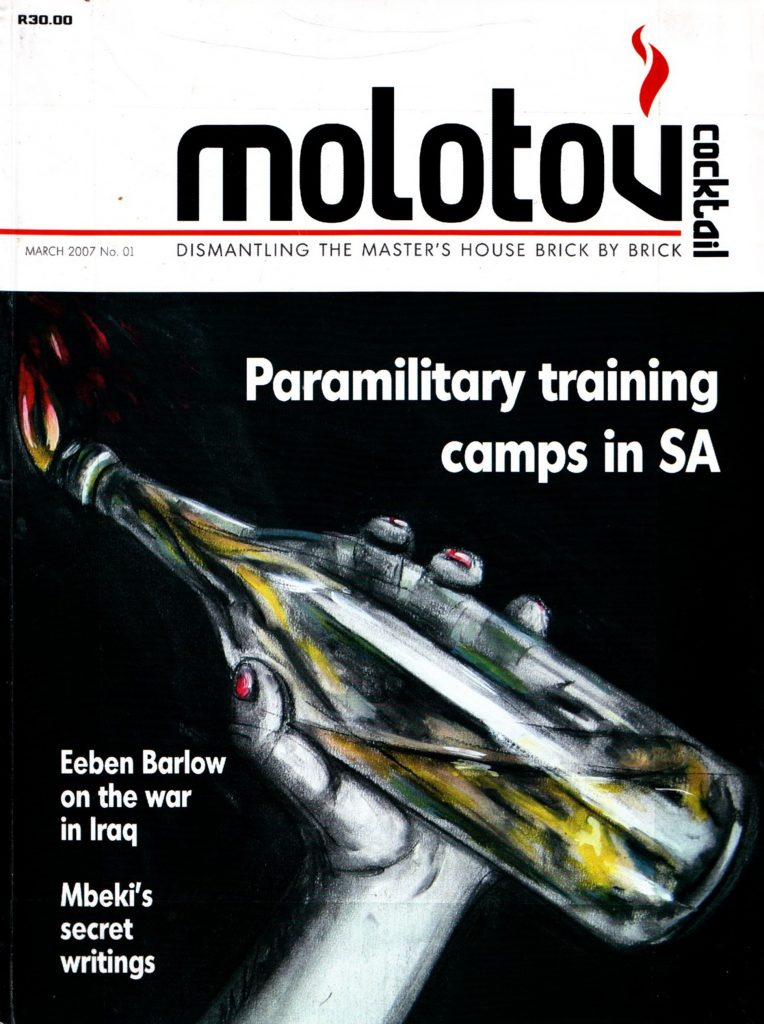
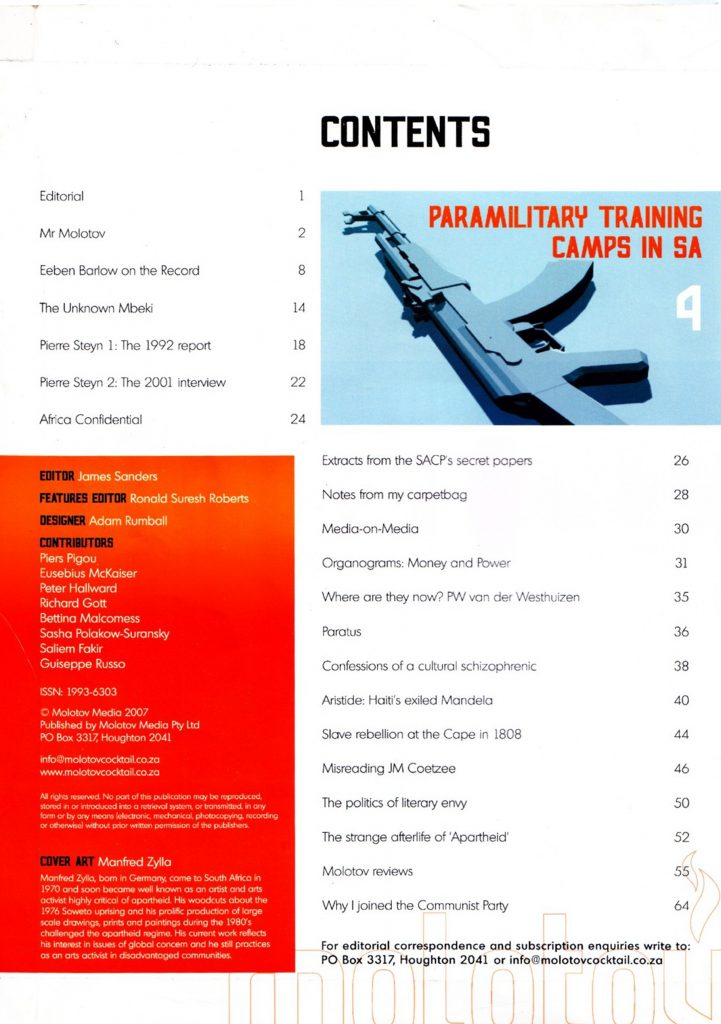
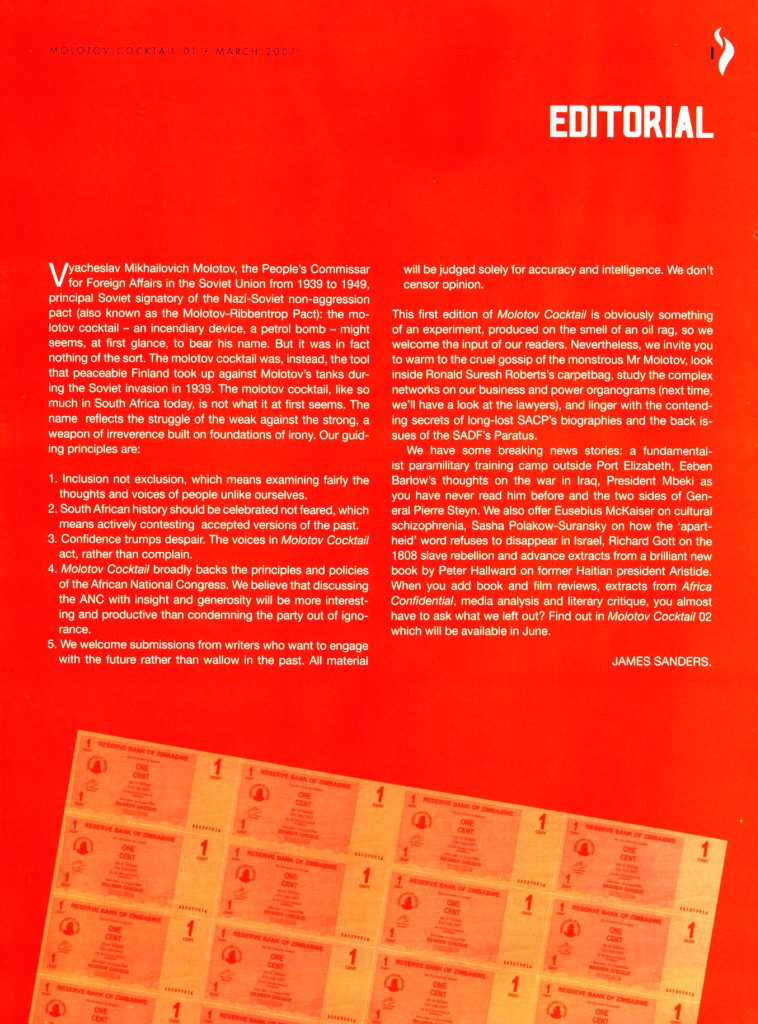
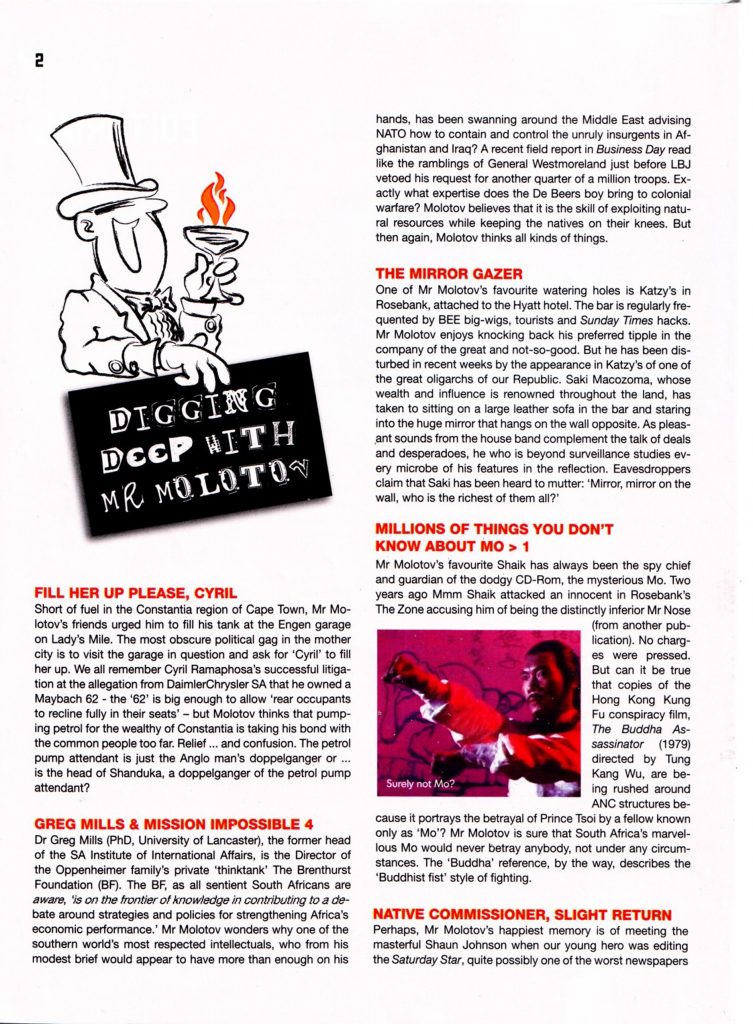
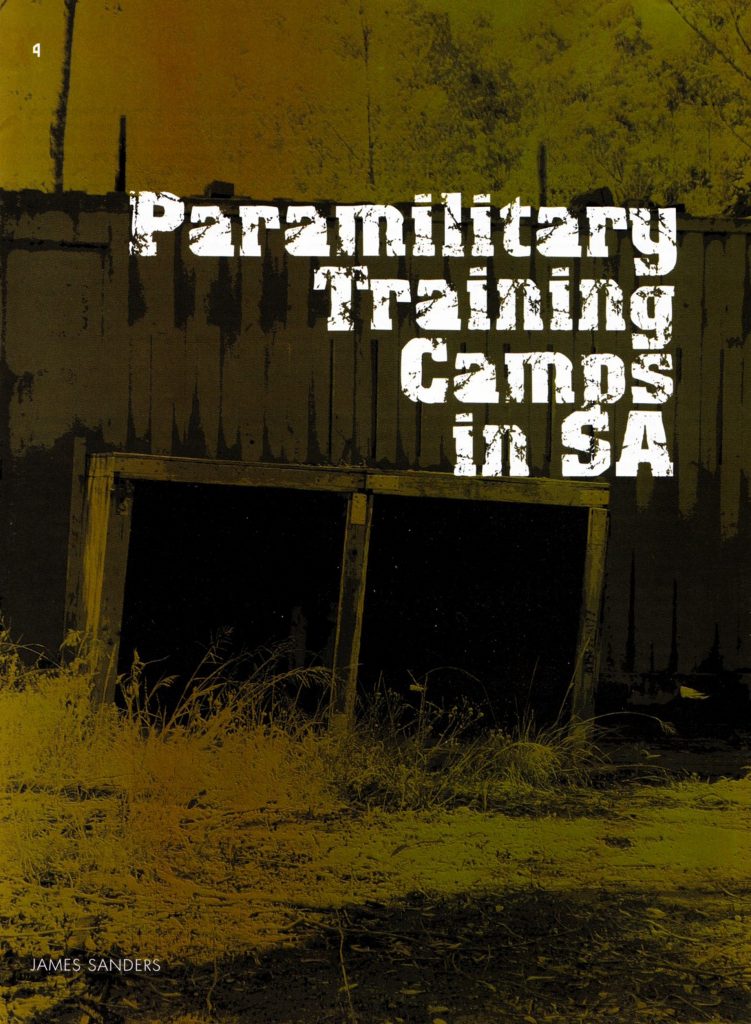
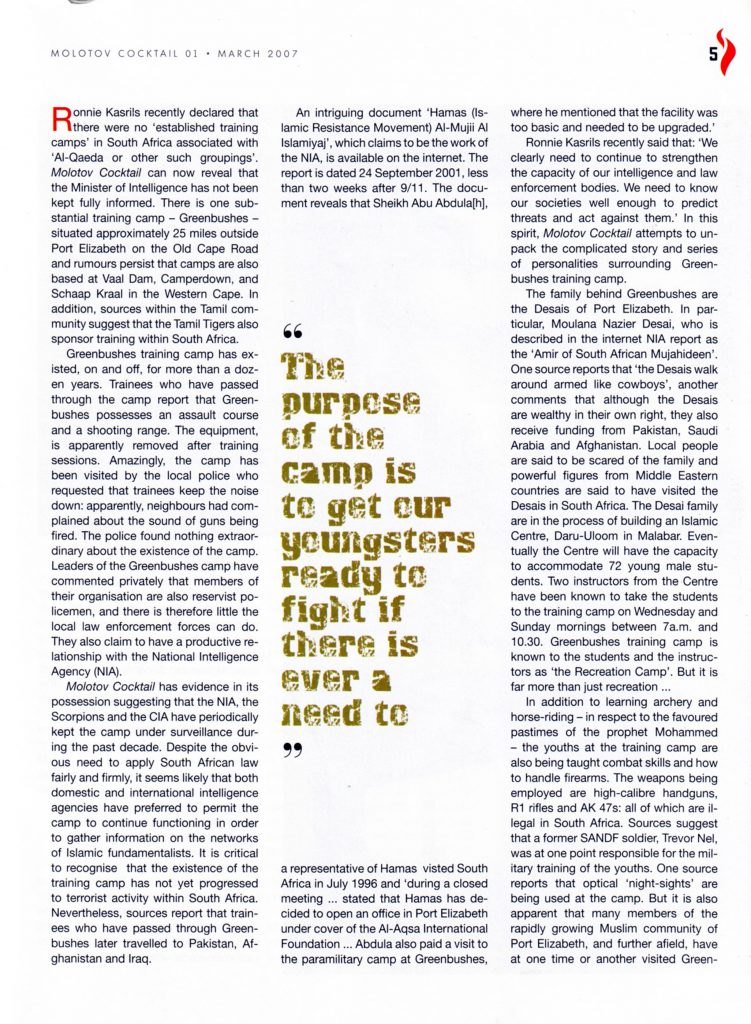
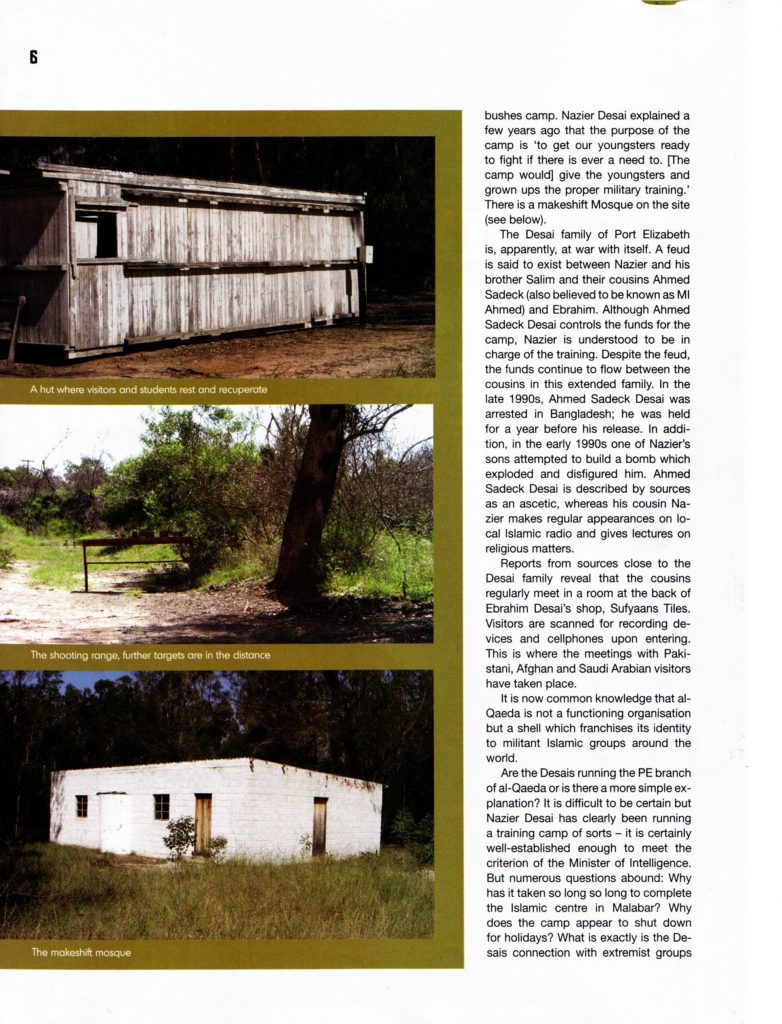
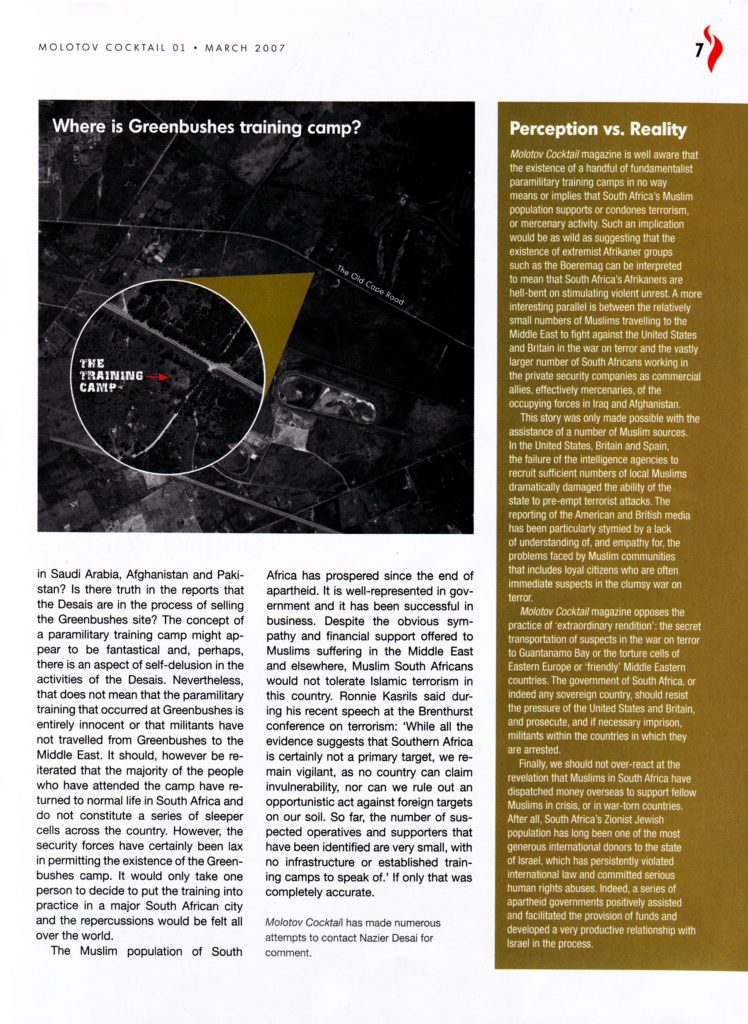
PEOPLE
James Sanders, Ronald Suresh Roberts, Adam Rumball, Zanele Mashinini, Yasmin Sooka, Sindiso Mnisi, Izzy Grove, Eeben Barlow, Lancelot du Preez, Richard Gott, Peter Hallward, Piers Pigou, Eusebius McKaiser, Sasha Polakow-Suransky, Lester Sands, Adam Rumball, Nicholas Tee, Dan Mare, Jonathan Bloche, Phillip Dexter and Thato Mofokeng.
FAMILY TREE
- Nose Week 1993
- The Media magazine
RE/SOURCES
- Molotov Cocktail
- Paul Kirk, Roberts primes a bomb, The Citizen, January, 2007
- The footnotes for Fit to Govern: The Native Intelligence of Thabo Mbeki By Ronald Suresh Roberts
This article and other work by Chimurenga are produced through the kind support of our readers. Please visit our donation page to support our work.
